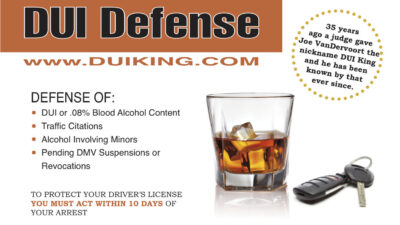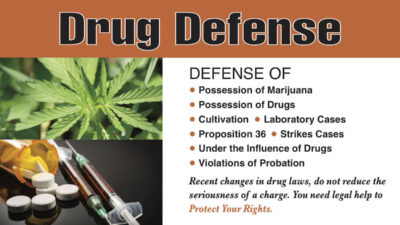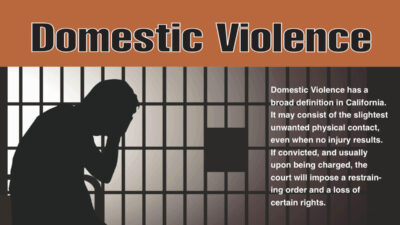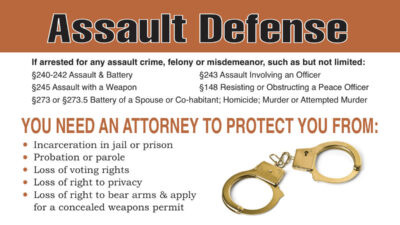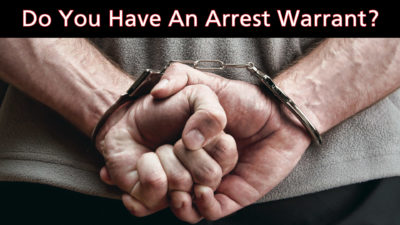Probation Department and
Law Enforcement Informal Probation
Juvenile cases are sometimes handled informally by the police department and/ or probation department by contacting the parents or the parent’s lawyer and the matter being settled outside of court.
However, these are usually first offenses only and are usually infractions or cases that do not involve traffic matters, DUI’s or drugs. These cases usually involve truancy, a school rule or a minor first offense shoplifting and the like.
Superior Court, Traffic / Juvenile Division
Minor traffic/juvenile offenses usually go to traffic court in the town wherein you received the traffic citation, if you are not a ward of the court already, that is, on probation and if it is your first offense. They often result in a fine, and/or the suspension of your driver’s license, and/or an essay, and/or community service. These offenses include, but are not limited to, speeding, minor in possession of tobacco, violation of curfew, and so forth.
Juvenile Court / Wardship
If you have a serious case or multiple offenses that are not merely traffic cases, such as a DUI, stealing from a person’s home (burglary), or drugs, you will have to appear in the Butte County Superior Court, Juvenile Division, which may be held at either the Juvenile Hall or the Butte County Superior Court, Oroville, depending upon the offense. Also, depending upon the offense, the case may be handled first by the Butte County Probation Department and then are usually referred to Court. These cases are all held in Oroville only. Although they are handled rapidly, they are handled in a formal manner and require that one or both parents appear. The juveniles usually must appear with parents, even when represented by an attorney, unless with the expressed waiver of the juvenile court judge in advance. These cases may result in a minor becoming a ward of the court, that is, placed on probation until you are a minimum of eighteen years old and can be kept on probation as a ward until reaching the age of majority. Not only that, but your matter can be certified to the Superior Court as an adult action and/or you can be kept on probation as a juvenile and later be certified to the adult division when you turn eighteen.
There is a right to a court hearing called a jurisdictional hearing wherein the judge hears evidence and decides whether or not your case has been proved beyond a reasonable doubt. There is no right to a jury trial in a juvenile case and most often the judge rules in favor of the prosecution. However, there are safeguards and many of the rights enjoyed by adults are also enjoyed by juveniles. If the court finds the charges untrue, the case is dismissed. If the court finds the charges are true, the court will usually continue the case for what is called a dispositional hearing, which is actually a sentencing hearing.
The probation department meets with the parents, the juvenile and sometimes the attorney. The juvenile is allowed to submit letters, letters of recommendation, grade point averages, etc. in support of him or herself. The probation department will then write a report about their recommendations for sentencing. The Judge then decides what sentence to impose after hearing from all parties.
In cases of this nature, the probation department is represented by the Butte County District Attorney’s Office. A juvenile is entitled to the representation of a public defender. The juvenile court public defender in Butte County whom handles most of these cases is required at least once and maybe twice per week to handle in excess of one hundred cases and does not have sufficient time to properly prepare for these matters. A private attorney should be retained in serious matters.
At sentencing the Judge may impose the following sentences:
1. A scolding or nothing, which is hardly ever done;
2. Impose a fine;
3. Place you on probation, that is, make you a ward of the court;
4. Place you in juvenile hall for a short or long period of time;
5. Remove you either temporarily or permanently from your parent’s home;
6. Place you into a rehabilitation program, such as, a boy or girls ranch; and/ or
7. Send you to the California Youth Authority, which is comparable to an adult prison for juveniles.
A case, under unusually harsh circumstances, can be transferred to adult court and you can be tried as an adult, wherein you may be subjected to all of the punishments possible to an adult.
Probation Conditions
If you are put on probation, that is, made a ward of the court, the court can impose almost any kind of condition imaginable ranging from fines, to the restrictions / suspension of a driver’s license, to taking you out of your home on a part time or permanent basis, or even in some cases sending you to state’s prison.
More often than not, you will be placed on probation, returned to your home with various conditions in regard to going to school, going to work, maintaining certain hours of homework, and any other type of condition that might apply to your particular case. If the case invloves alcohol, drugs, or vandalism, the Judge will take your license even if a car was not invloved.
Appeals. Writs and Reviews
You do have a right to appeal, or object, to proceedings taken by the juvenile court. However, since most of the cases are handled in the Butte County Superior Court and not traffic court, your ability to appeal is quite limited, as any appeal or writ would have to go to the Third District Court of Appeals in Sacramento or some federal court. The ability to get that done, and the costs, are almost prohibitive, except in the rarest of cases.
Termination of wardship or probation and expungement of record
The court usually places you on probation until eighteen years of age. In rare cases, if a good job is done and the case is not too serious, you can have your probation terminated early. Also, if you meet the criteria, at the age of eighteen you can often have your record expunged, unless it is a traffic case, which can never be expunged from your driving record, although it can be taken off your “criminal” record as far juvenile reporting goes. I highly recommend that if you have a juvenile record, upon becoming an adult, that you have it expunged.

